This Unsung Rabari Herder From Kutch Played a Key Role in Two Indo-Pak Wars
Here's the riveting story of Ranchhod Pagi, the forgotten scout from Gujarat's Banaskantha whose unique skills saved thousands of Indian lives during two Indo-Pak wars.
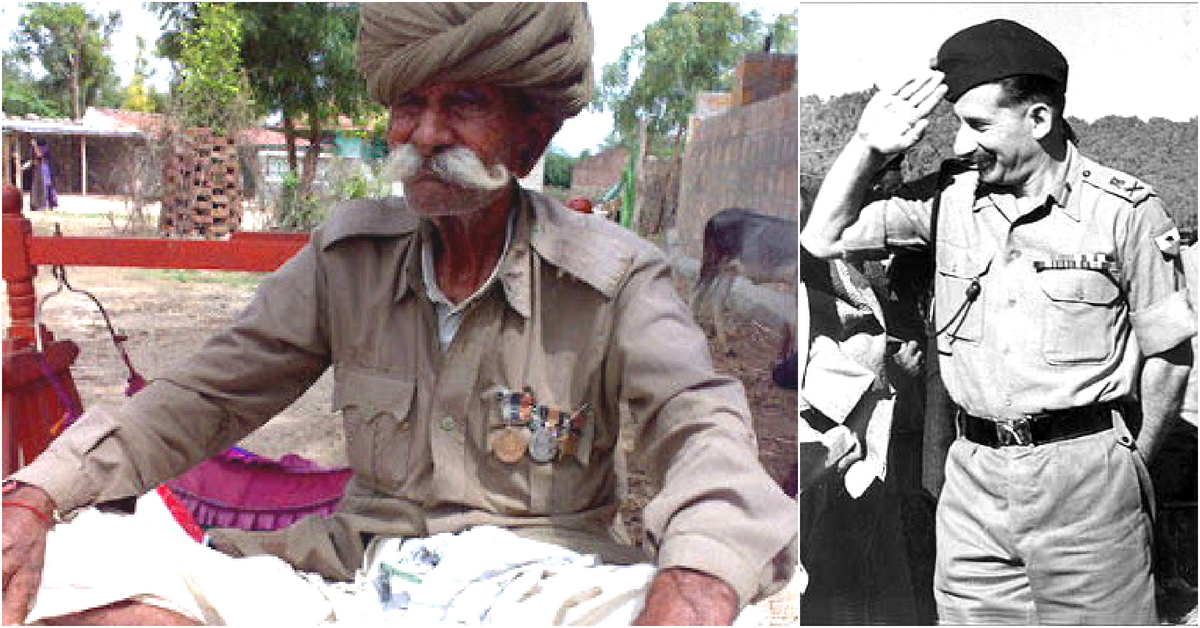
On December 16, 1971, the Indian Armed Forces won a gritty and decisive war against Pakistan. Many courageous soldiers laid down their lives while answering the call of duty to defend their nation.
It’s been nearly forty-seven years since then, but the unparalleled courage and contribution of these brave hearts are still etched in the collective memory of the country. However, few people know about the Rabari cattle grazer from Banaskantha whose unique skills helped the Indian Army capture enemy soldiers and key towns during the war of not just 1971, but also 1965!
Here’s the riveting story of Ranchhod Pagi, the unsung scout from Gujarat whose unique skills saved thousands of Indian lives during two Indo-Pak wars.
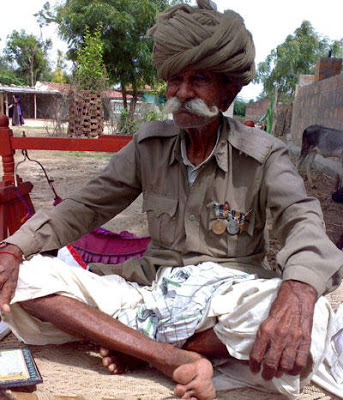
The year was 1965. Hostilities had started in April after Pakistani incursions into the Rann of Kutch, the sprawling salt marsh located in the Thar desert in Gujarat. By August, the Indo-Pak border had turned into a battlefield.
Hailing from a family of Rabaris – a nomadic tribe of cattle and camel herders that resided in the Limbala village of Banaskantha, Pagi was working as a guide with the local police when war erupted and he was recruited by the Indian Army as a scout.
The reason? His exceptional tracking skills. Courtesy of having lived a life deeply intertwined with nature and livestock, the humble herder had the ability to deduce crucial intelligence about troop movements from barely-there footprints.
Affectionately known as the ‘old war camel’ by the Border Security Force (BSF) jawans, Pagi would sit on his haunches at the Indo-Pak border, peering into the horizon with his beady eyes and poking the ground for signs of intrusion from Pakistan.
Also Read: This 25-Year-Old From Rajasthan Just Became BSF’s First Female Combat Officer
Such was his skill in culling information from footprints that he could detect the number of intruders, the speed of their movement and whether they were carrying luggage. He could also determine how much time had elapsed since the footprints were made, the direction in which the intruders had gone and even if they had sat on the ground, conversing with each other!
As such, the information he provided to the BSF and the Indian Army was of critical importance. Not only did it save many Indian lives, it also played a pivotal role in key strategic missions in the region.
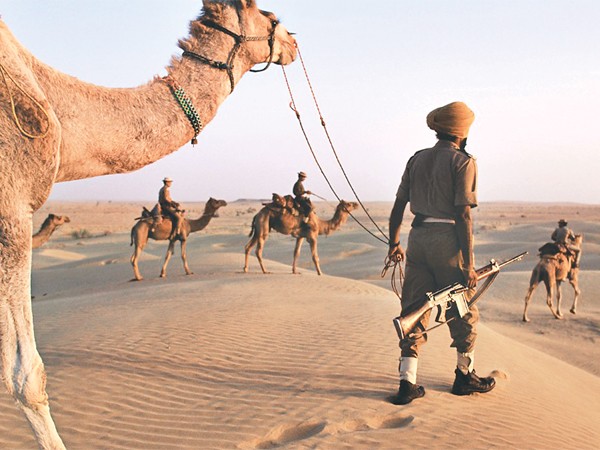
In fact, his knowledge of the terrain and tracking expertise also helped Indian soldiers capture the crucial posts of Chharkot and Vidyakot in the 1965 war.
In early 1965, a large continent of Pakistani soldiers captured the strategically-important Vidyakot border post in Kutch following a fierce battle in which 100 brave Indian soldiers laid down their lives. A combat unit of 10,000 Indian troops dispatched to recover the post, but it was essential they reached the remote post in three days (before Pakistani reinforcements arrived) to succeed in their mission without much loss of lives.
It was then that the Indian Army decided to deploy their most trusted scout. With no thought for the high risk to his life, Pagi guided the Indian force through the treacherous terrain to reach the post in time. Furthermore, under the cover of darkness, he also traced the location of 1200 Pakistani soldiers who were hiding nearby, leading to a decisive Indian victory!
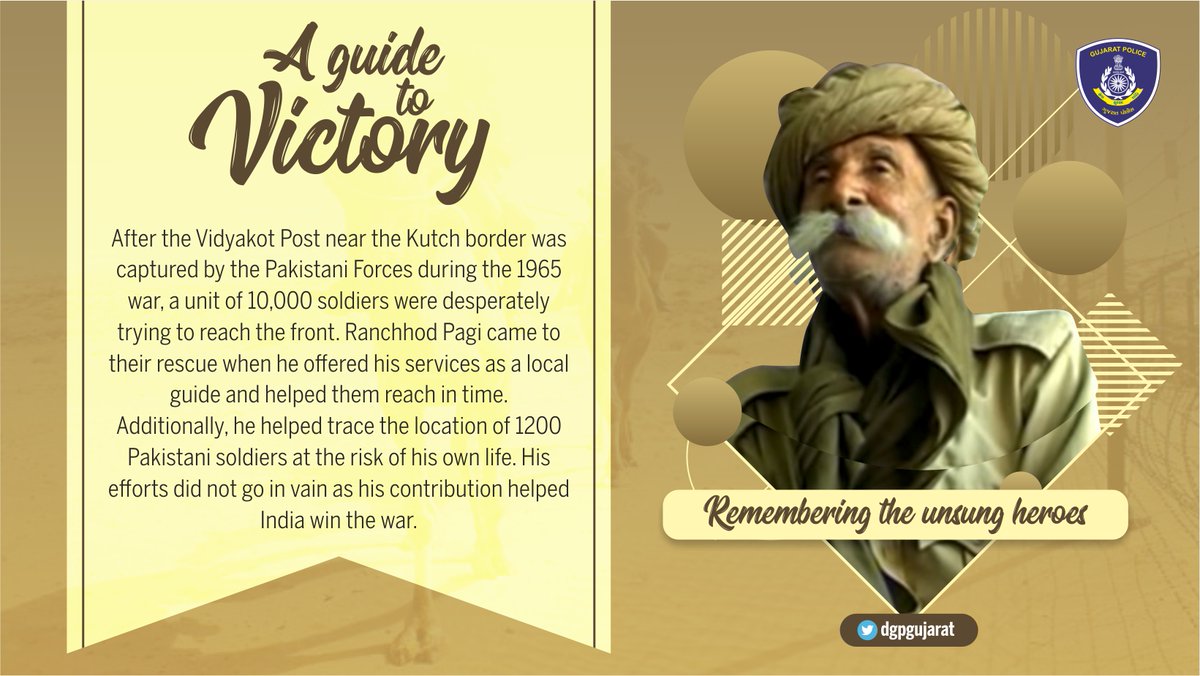
He repeated the feat by helping the army capture the Pali Nagar post in the 1971 war. Interestingly, after the 1971 war, Pagi was personally invited by an impressed Sam Manekshaw to meet him. The legendary Field Marshall sent a helicopter to bring the scout all the way from Gujarat, commended him for his work, gave him a reward of Rs 300 and then sat down to share a lunch with him.
“The General was taken aback, when during lunch, I took out bajro no rotlo ( traditional bread) and an onion out of my bag. But to my surprise, he was delighted on eating it!” Pagi would later recall about the memorable occassion to the Outlook.
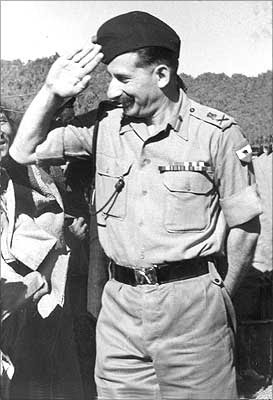
Also Read: Field Marshal Sam Manekshaw, the Legend Who Was India’s Greatest General
Pagi was also awarded three honours — Sangram Medal, Samar Seva Star and Police Medal — by for his exemplary work during the Indo-Pak wars of 1965 and 1971. Revered by his fellow villagers, he was also bestowed the honour of hoisting the national flag on Independence Day at his village every year
In the years to come, the Rabari man would continue to offer his services to the BSF and the Indian Army, proving his mettle time and again. One of the most famous of his successes was the capture of the camel ‘Musharraf’ in 1998, which was carrying 22kg of RDX. A year later, he would go on to track Pakistani intruders with 24kg RDX near Bhagat Veri, and find another 46 kgs of the explosive buried in the Rann off Hajipir.
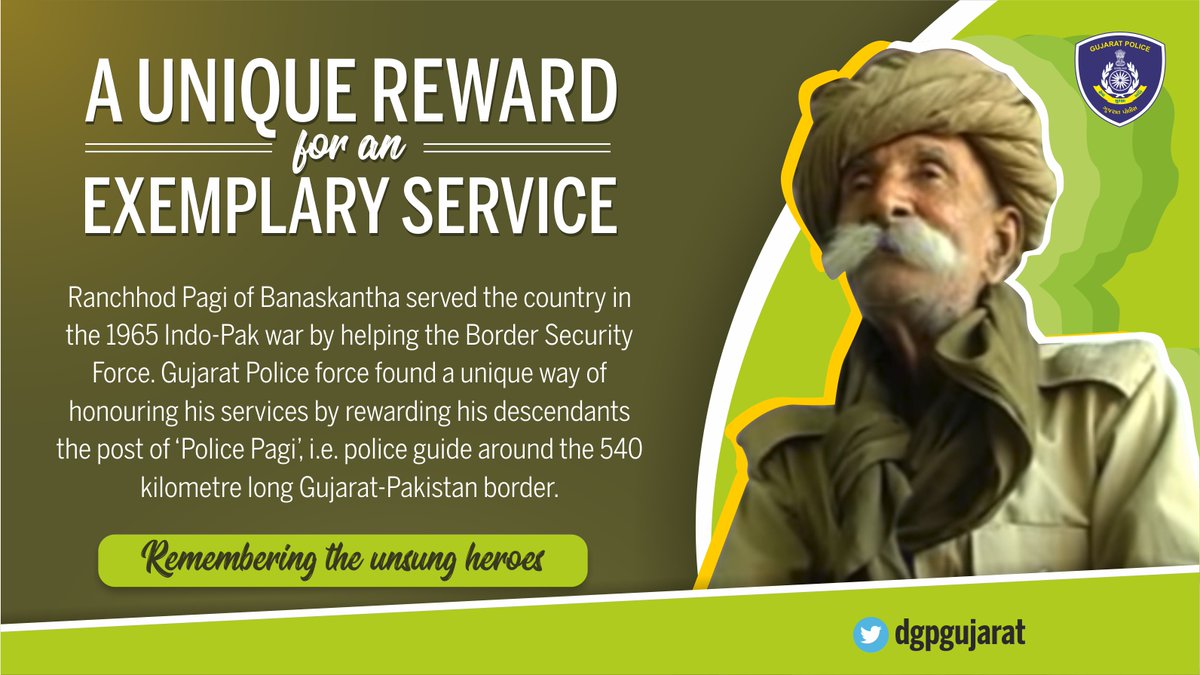
In 2013, four years after he finally retired, Pagi passed away at the advanced age of 112. BSF honoured him by naming one of its Banaskantha outposts after him as Ranchhod Post. Gujarat Police also found a unique way of honouring him — they gave the moniker of ‘Police Pagi’ to other scouts from his community who still continue to assist the BSF in guarding the 540 km long Indo-Pak border in Gujarat.
There could be no better way to celebrate the memory of this unsung Rabari legend. For as the grateful SP of Kutch once said: “The Pagis are our anchormen on the border in the Rann.”
(Edited By Vinayak Hegde)
You May Like: From a Village in Kutch, Pabiben Rabari Created a Global Brand to Empower Local Female Artisans
Like this story? Or have something to share? Write to us: [email protected], or connect with us on Facebook and Twitter.
NEW: Click here to get positive news on WhatsApp!
nbsp;

Similar Story
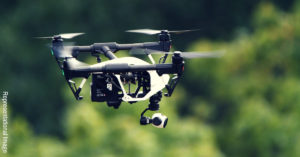
Mohali Engg Student Designs UAV for IAF, Gets Interest From Defence Ministry!
A final-year student of BTech (Mechanical) at the Chandigarh Group of Colleges in Mohali, his design of an unmanned aerial vehicle (UAV) for the Indian Air Force (IAF) is gaining limelight among top brass, including the Department of Defence Production.
Read more >
If you found our stories insightful, informative, or even just enjoyable, we invite you to consider making a voluntary payment to support the work we do at The Better India. Your contribution helps us continue producing quality content that educates, inspires, and drives positive change.
Choose one of the payment options below for your contribution-
By paying for the stories you value, you directly contribute to sustaining our efforts focused on making a difference in the world. Together, let's ensure that impactful stories continue to be told and shared, enriching lives and communities alike.
Thank you for your support. Here are some frequently asked questions you might find helpful to know why you are contributing?


This story made me
-
97
-
121
-
89
-
167












